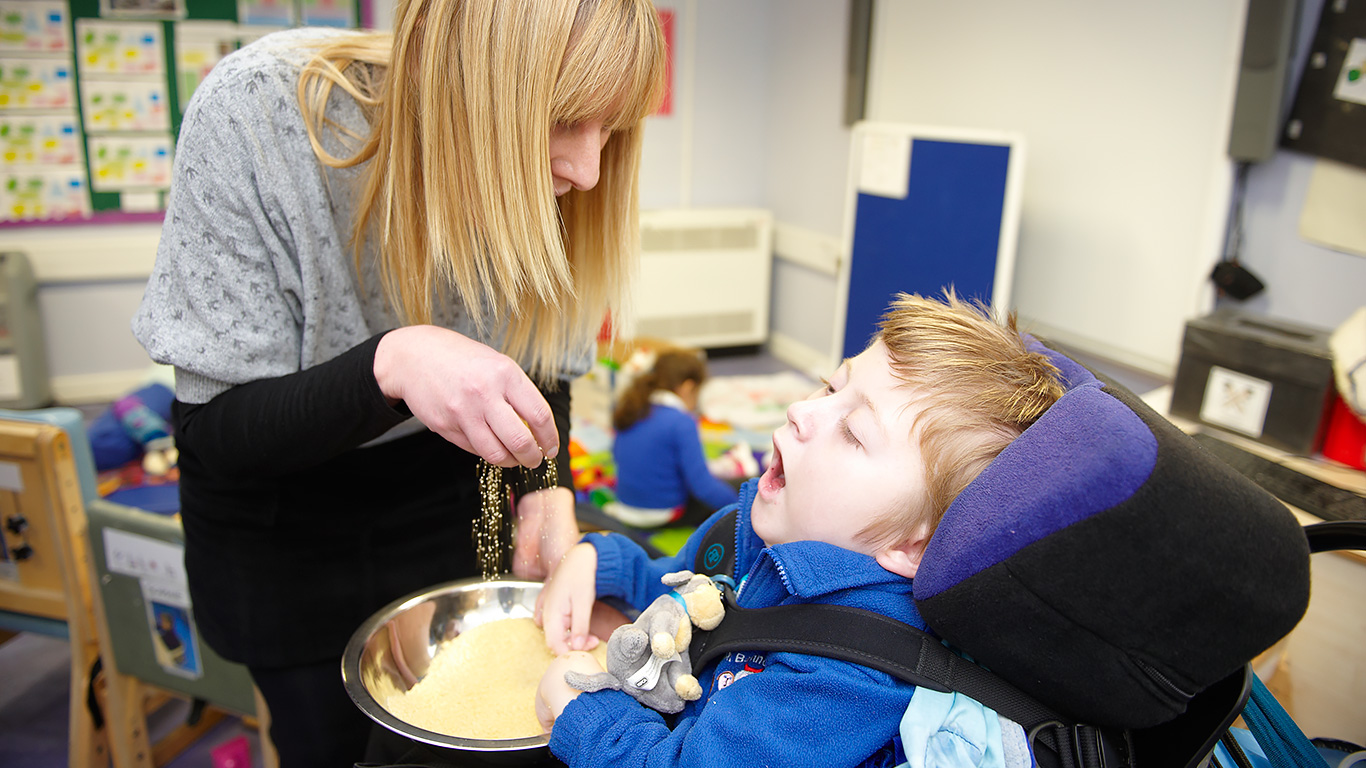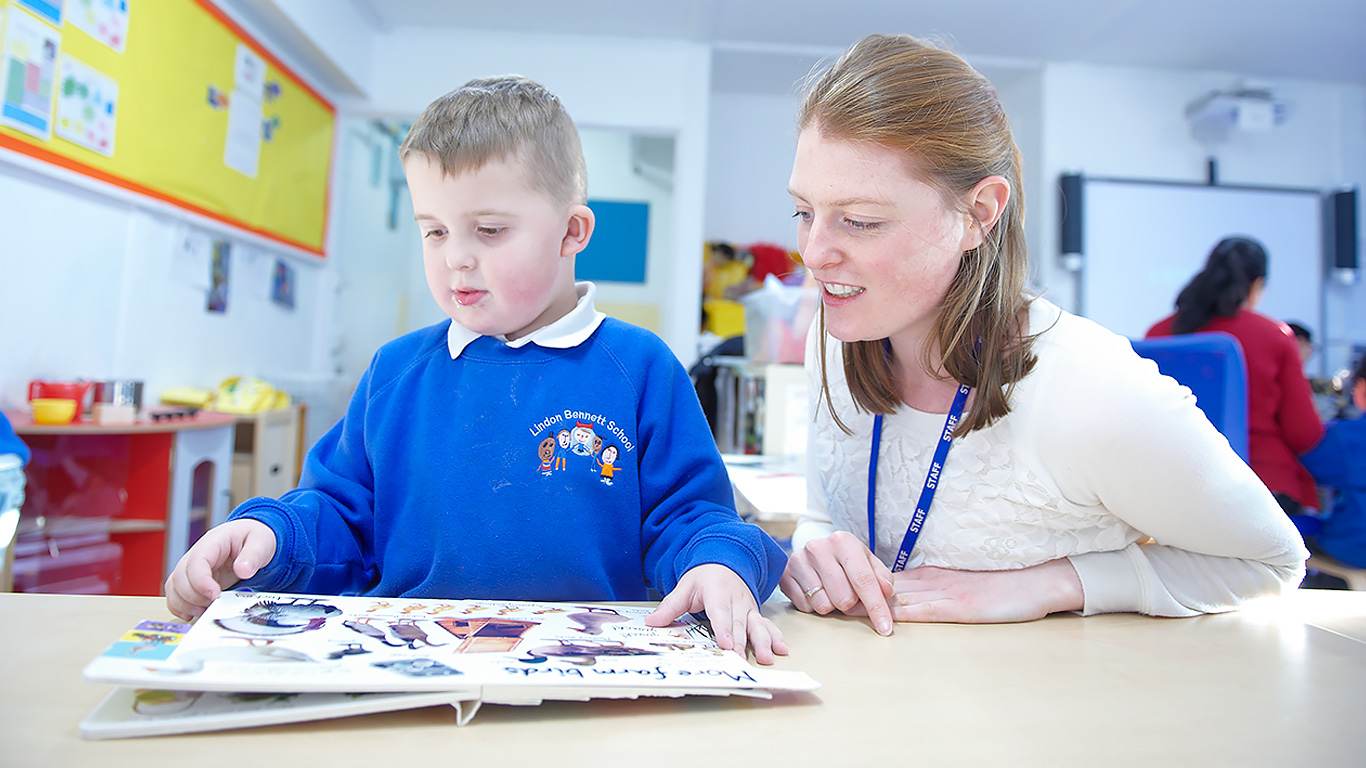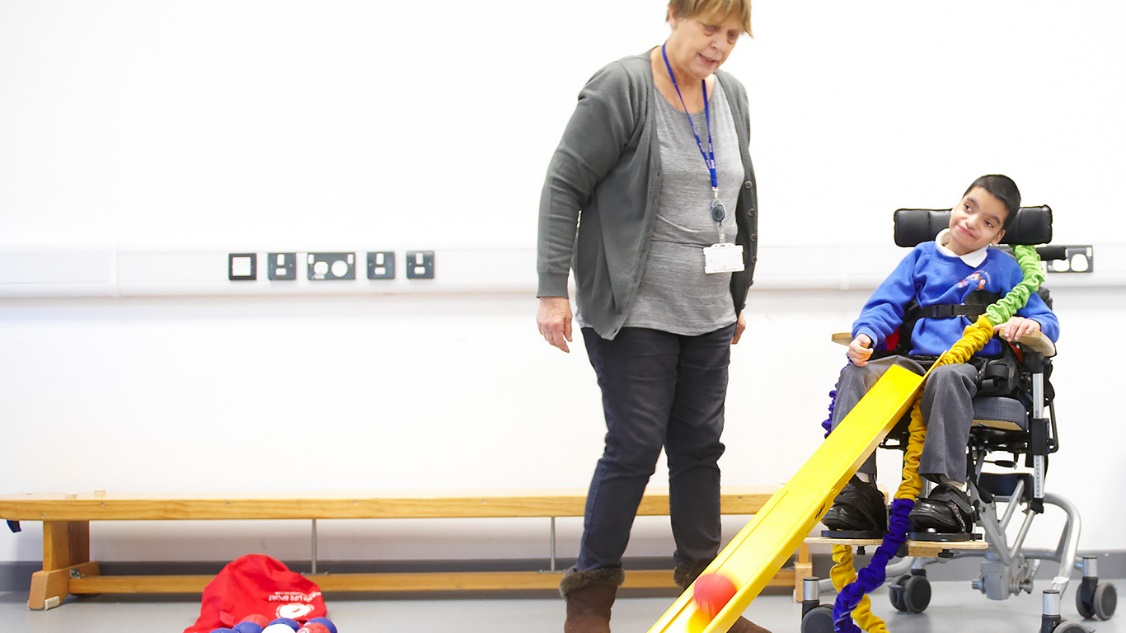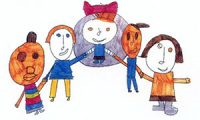
Therapy provision
Education and therapy staff work together as part of a multi-disciplinary team, which is designed to meet the wide-ranging needs of pupils attending Lindon Bennett School.
Liaison with therapists is a key role for teaching and support staff, and this takes place via formal meetings and appointments as well as through less formal discussions.
Pupils may access one or a combination of the following therapies, this will be determined by what is identified on a child’s EHCP:
- Speech and Language therapy
- Physiotherapy
- Occupational therapy
- School health team
Speech and Language therapy
Communication
Our Speech and Language Therapist (SaLT) work with children in school who have Speech and Language therapy identified in their EHCP, they:
- Help students to access various modes of communication to fulfil, identify and extend their communicative potential
- Promote language and communication skills within the classroom and wider school environment
- Enable pupils to access the curriculum, learn and make progress
They support the development of pupils’ skills in the following areas:
- Attention and Listening, Auditory processing
- Understanding Receptive and Expressive Language
- Spontaneous and Independent (Functional) Communication
- Speech clarity
- Higher level thinking, planning and sequencing reasoning
- Social interaction & Communication + Play
- Use of alternative methods of communication e.g. PECS, high-tech communication aids (switches, VOCA, Big mak), signs and makaton
Eating and drinking
We aim to maximise pupils’ eating, drinking and swallowing skills, including:
- Accepting/tolerating different textures and tastes of foods and drinks
- Chewing
- Swallowing
- Saliva management

Physiotherapy
The team provides assessment, treatment and management of our pupils’ physical and gross motor development. The physiotherapists aim to optimise each pupil’s individual physical potential in line with their EHCP.
Physiotherapy support is provided through:
- Programs that are integrated into daily routines both at home and school
- Training of school staff to implement physiotherapy programs
- Provision of equipment to assist with standing, walking, seating (to enhance balance and function) and lying postures as part of a pupil’s postural management program
Therapy sessions occur within the classrooms as these are the most important environments for enhancing our pupils’ learning, as well as in therapy rooms.

Occupational therapy
Occupational therapy (OT) can support children who have OT identified on their EHCP. OT can help children with various needs including cognitive, physical, sensory, and motor skills and enhance their self-esteem and sense of accomplishment:
- Seating and positioning – specialised equipment, seating, toilet and bath equipment and cutlery
- Hand function – Manipulation and writing skills
- Learning skills – perception, problem solving and planning. Making sense of the world around them
- Self-care skills – eating and drinking, personal care and domestic skills
- Sensory skills – e.g. touch, movement, smell, taste
- Sensory diets
- Play – the child’s use of toys and play through their development
Currently physiotherapy is provided by health, and occupational therapy is provided by the Hounslow School Children’s Therapy Service. Speech and Language Therapy for children in Nursery, Reception, Yrs 1 and 2 is provided by health and by the Hounslow Service for all other children. Health Occupational Therapists are responsible for splinting and seating.
